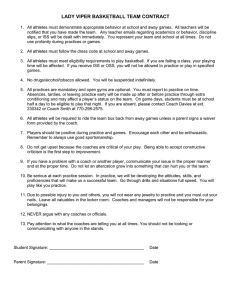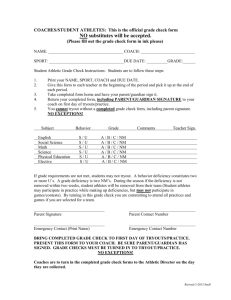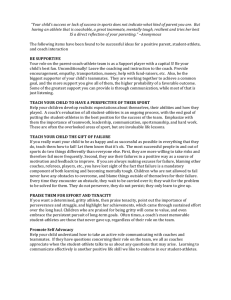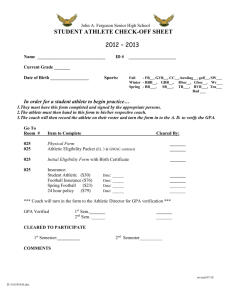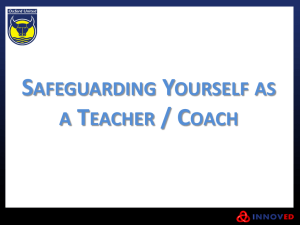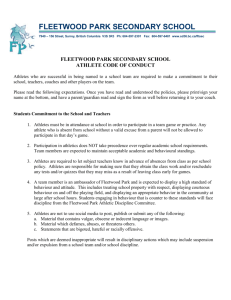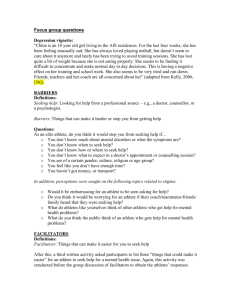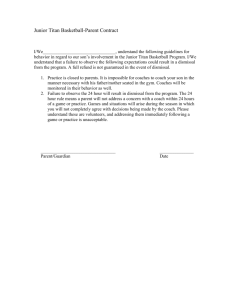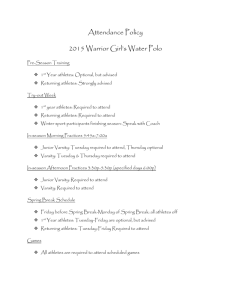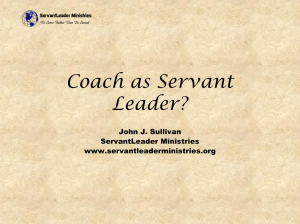California Distance Training
advertisement
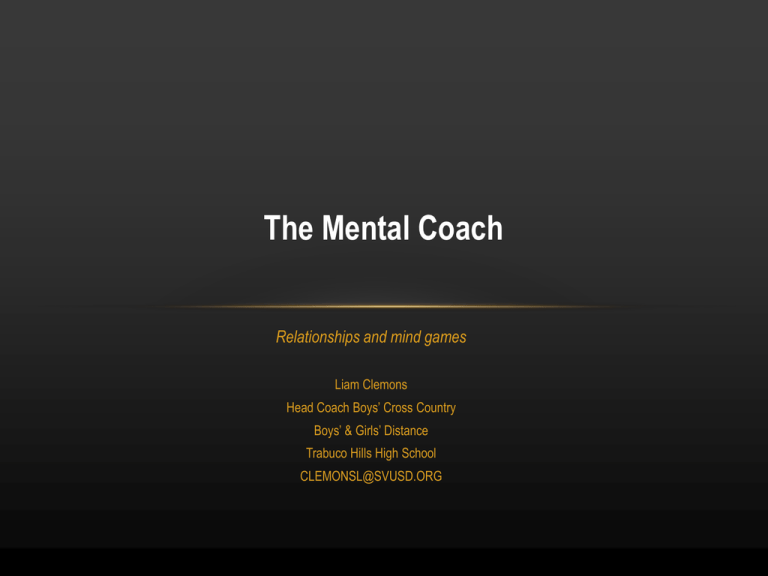
The Mental Coach Relationships and mind games Liam Clemons Head Coach Boys’ Cross Country Boys’ & Girls’ Distance Trabuco Hills High School CLEMONSL@SVUSD.ORG A Strong start • All starts with good communication skills • LISTEN!!!!! • Good communication leads to a less stressful environment. Being able to express needs, feelings, and opinions will make my athletes feel more relaxed and comfortable in a group setting. They will go into races feeling like they have had all of their questions answered. Then, they focus better on the task at hand. The goal • Obviously we want to win • We can’t win if we are not prepared • Communication is essential to preparation • I have found that my teams perform best when they feel like they are well prepared and can confidently set out to achieve their collective goal. The state championship teams I had in 2006 and 2011 were very confident groups. They felt like they were in control of a race no matter who they were racing. They prepared to control the pace and tactics in practice every day. When they lined up at the start of a race they were confident that they would execute their plan and control the variables in that race. This outlook led to them achieving levels of performance that exceeded their goals. Trust Trust is essential to good communication How to gain an athlete's trust: •Take a real interest in their lives •Be Honest •Be a chameleon •Explain your workouts and philosophy •Give good feedback •Be consistent •Love Service What does service mean? •All athletes, to some extent, want to perform for their coach •Coaches should want to perform for their athletes •Create a culture of service I try to avoid using the word “my” when talking about the athletes I coach. I tell them that they do not run for me... I coach for them. I try to convey a message that we are at our best when we serve others. I want them to run in the service of each other. Mentorship, not friendship •They can be your friend when they graduate college •No Facebook friends •Coaches are like older siblings in the least, but usually more like a parent Honor that responsibility •My personal mantras: •Always be teaching •Coach the athlete, not the sport Now that you've got their attention... Time to play mind games Mind games = mental skills training and mental toughness My goal is to toughen them up Think like a Jedi and Talk like one too Trick them into running fast Mental toughness •Start with visualization in a quiet environment •Walk them through a race or the last mile •Talk about the smells and sounds •Use some distractions to test their focus level •Keep them in the moment After running hundreds of miles, a three-mile race does not sound as difficult. Similarly, after learning to focus and imagine your race with a high level of control and vividness, the athlete is better prepared to focus on race day. The biggest trick of all... Teaching them how to calm down and gain self control under pressure. Methods: •Routines •Centering exercises •Breathing •Segmentation Key is to learn that you can only control yourself. Don't worry about what you can't control. Connecting mental and physical toughness - Pain Threshold What is it? Extreme core work designed to push their pain tolerance level higher. •Long planks •Quarter downs •Long leg lifts •Cross Fit routines * “Most of the time, the guy that wins isn't faster, he is just more stubborn” – Bob King, Del Campo HS
